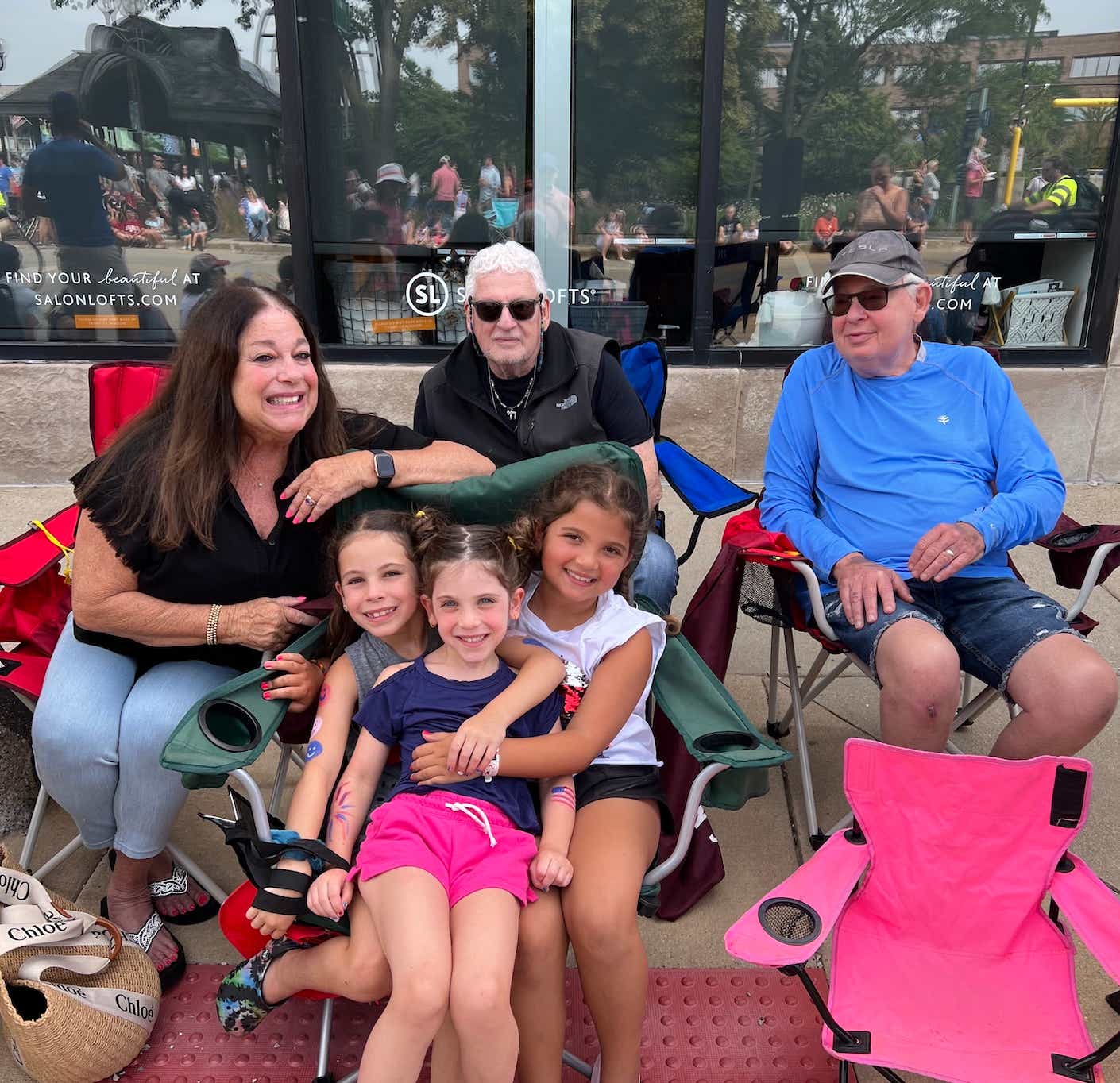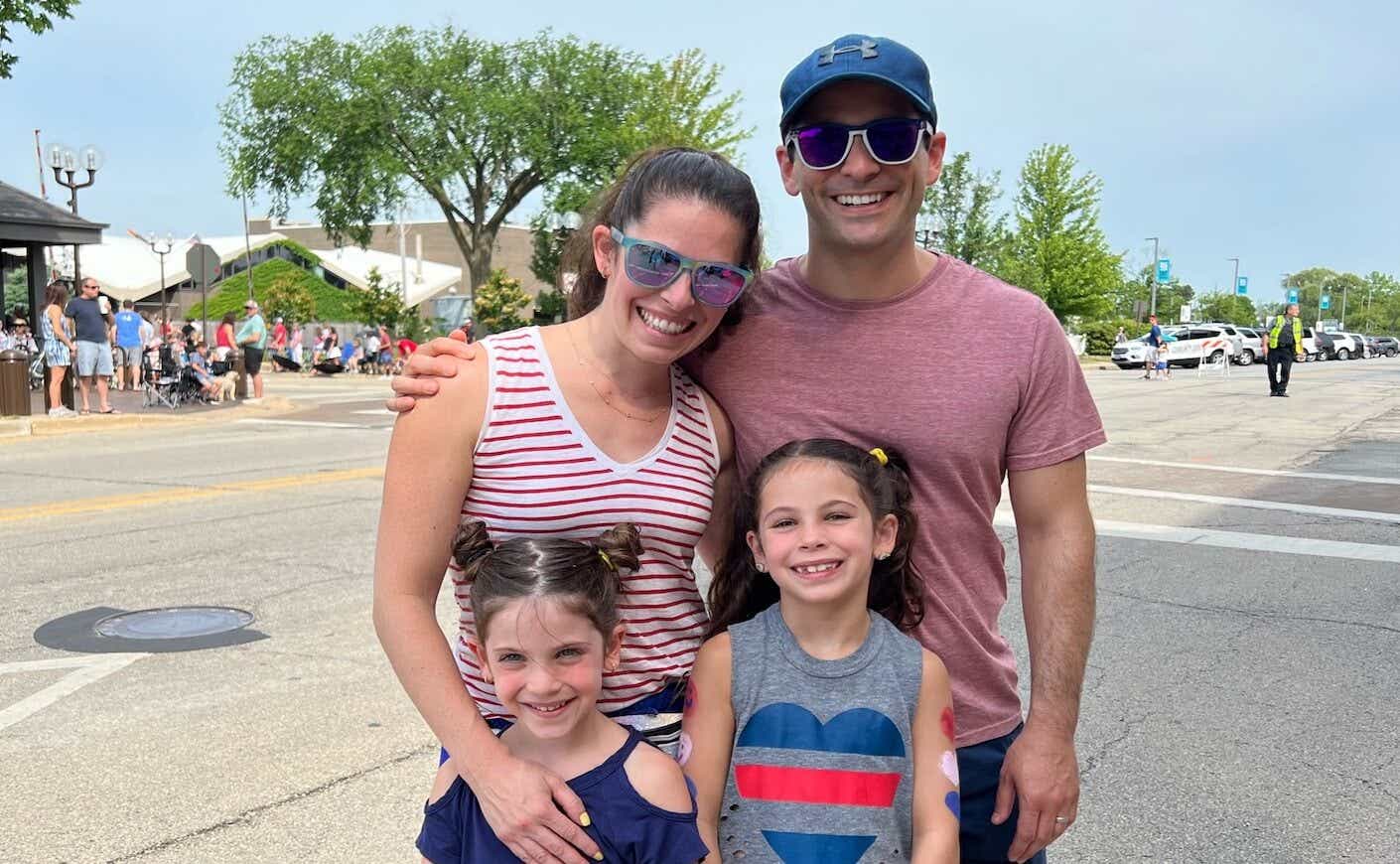Emily Lieberman, MD, was born and raised in Highland Park, Illinois, and grew up going to the town’s annual Fourth of July parade. She never could have imagined that her safe, idyllic community would become the center of a horrific mass shooting.
Dr. Lieberman is part of a group of physicians who will be traveling to Washington D.C. on December 6 to meet with members of Congress to urge them to pass the Assault Weapons Ban. We spoke to her about how surviving a mass shooting turned her into an activist, why physicians’ voices are so important in this fight, and what you can do to help get this legislation passed before the end of the year.
Katie Couric Media: Emily, can you take us back to that day and describe what you experienced?
Emily Lieberman: The Fourth of July is a very special day for me. I’ve been going to the parade since I was a young child and it’s my favorite day of the year to celebrate with my children. This year had been especially meaningful since the parade had been canceled for two years in a row due to Covid.
I started the morning off with the biggest smile on my face. I dressed my two young daughters and husband in red, white, and blue.
A couple of minutes into the parade, my children were in the street, happily collecting candy. All of a sudden, we heard these pops ringing overhead and my husband and I immediately turned to each other and realized that our town was under attack. He grabbed my eight-year-old and I grabbed my five-year-old. As we each tried to clutch onto our children, we lost track of each other. I was trying to escort my mom and stepfather — who have limited mobility — to safety.
My five-year-old daughter, my mom, my stepdad, and I ultimately ended up hiding in a single-occupancy bathroom in a nearby storefront with 16 other people. We were crouched on the ground in silence for two and a half hours as the nine adults wrapped our bodies around the seven young children to try to protect them. When I ultimately was freed from the bathroom, I was so grateful that no one in my family was physically harmed. I promised that I would do everything in my power to prevent these attacks from continuing to devastate other towns.
How is your family and community coping with the ripple effects of this horrifying event?
We’re definitely still seeing the daily effects of this traumatic event in our town. In my own house, we’re still struggling with the trauma; loud noises, like the simple revving of motorcycles, startles all four of us.
Our community at large is shaken to its core. As a physician who treats patients from Highland Park and nearby communities, the ripple effect is mind-blowing. Even people who weren’t at the parade are experiencing increased levels of anxiety and depression. We’re approaching the period when we could start calling it post-traumatic stress disorder. So it’s not only the casualties from these mass shootings that are so damaging — it’s the ripple effect, how it tears apart communities, and how it tears apart our sense of safety and security in our nation.
How did you get involved with the nonprofit organization March Fourth?
In the days following the parade, I connected with Kitty Brandtner, who was starting March Fourth, and we immediately joined forces. I decided to go to D.C. to speak with the other almost 500 people that she had recruited from Uvalde and Highland Park to end this rising increase of mass shootings. While I was there, I found that my voice as a survivor and as a pediatrician was very unique.
I created a medical outreach division within March Fourth. We’re working to get physicians and healthcare workers to come together and say that this increasing incidence of mass shootings in our country is a public health crisis.
Our upcoming visit to Washington, D.C., is dedicated solely to physicians. We have curated a group of over 60 physician gun safety experts and injury prevention advocates from across the country. We have targeted 26 states whose senators are not currently co-sponsors of the assault weapons ban but have shown some interest in gun safety legislation.
Our goal in these meetings is to get these senators to co-sponsor S.736, the Assault Weapons Ban of 2021, and acknowledge that they will vote yes before the end of the year. Not only are we targeting more votes, but we’re also speaking with the senators who currently co-sponsor the assault weapons ban and letting them know that we’re working hard to change minds. We’re working hard as a medical community to demand a vote before the end of the year as well.

Why is it so important to get this passed before the end of the year?
This ban is set to expire December 31. If the Senate doesn’t pass it in the next couple of weeks, the House of Representatives would have to vote on this bill again. We’ve seen that it’s likely to be a largely Republican constituency in the House, so we don’t have as much faith that it would pass should this come to vote again. In order to prevent more mass shootings and save more lives, we need to pass this before there’s a change of legislature on the first of next year.
Why is it so important for physicians and the medical community to lend their voices to this fight?
Having physicians as the key messengers is crucial to passing the bill to ban assault weapons. As physicians, we are advocates for promoting the health and well-being of the citizens of our country. In fact, we take the Hippocratic oath the day that we become physicians where we swear to treat the ill and prevent illness in the healthy. We’ve seen time and time again that public health measures physicians have created have helped to mitigate fatalities in our country. For example, dysentery like cholera was a leading cause of death in children. When the Bill of Rights was written, we used simple measures like hand washing and sanitization of water. Now, we no longer see dysentery in the United States as a leading cause of death in children.
Because of these physician-driven public health measures, we no longer see motor vehicle accidents as the number one cause of death of children. Now we see firearms as the number one cause of death of children and therefore it’s essential that physicians band together to repair this and create change. We need a public health solution to this problem. The solution is a ban on assault weapons and high-capacity magazines to decrease the incidents of mass shootings in our country.
What are ways that people can help support getting the Assault Weapons Ban passed?
One way that people can help us move this mission forward is to find out if your senator is a sponsor of the Assault Weapons Ban. If your senator’s not a co-sponsor, you can come onto the March Fourth website and use the scripts we’ve provided to tell your senator that you are a constituent of their state and that you believe that these weapons of war don’t belong in the hands of citizens and you want them to support an assault weapons ban.
Similarly, if your senator already co-sponsors the assault weapons ban, then you can call your senator again with scripts on our March Fourth website and let them know that it’s time for leadership to bring this to vote.









